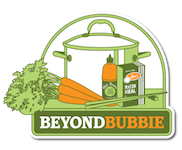On Friday afternoons, my father-in-law, Howard Jack Malach, would leave work early and drive across town to Grodzinski, a kosher bakery, before it closed for Shabbat, all for the sake of the babka. Yes, there were closer bakeries with their own babkas in this corner of Toronto’s Jewish suburbs, but to Howard, Grodzinski’s babka was king — a dense, perfectly moist loaf with veins of dark, sugary chocolate.
At home, Howard would set it on the counter (where his wife, Fran, would inevitably tear a chunk off), slicing the loaf for the kids at the end of dinner. The next morning, he’d reheat the leftovers until the chocolate melted, then dunk sticky slices into his coffee. Three years ago, Howard’s prostate cancer, dormant for a decade, metastasized in his bones. As his appetite disappeared, he shed weight at a terrifying pace. The doctor prescribed hormone blockers as a temporary solution, and when the cancer retreated, Howard switched to a raw vegan diet prescribed by a naturopath. This was tough for me. In the few years I’d known Howard, food was our strongest thread. We bonded over smoked-meat sandwiches and hamburgers, sausages and doughnuts. As hard as I tried, I couldn’t feign appreciation for freshly pressed almond milk and cold pizza with walnut crust and cashew chèvre. Some months later, when Howard was in Florida, the cancer began its final assault.
The family pushed for more kale salads and wheatgrass shots, but I encouraged Howard to eat whatever he desired. Each meatball that I sneaked onto his plate not only brought him joy; it also brought us closer. One night I gave a talk at a Jewish delicatessen in West Palm Beach. Howard had taken his cooler of sprout salads, but when the buffet opened up, he led the charge, elbowing past Florida’s aggressive early birds to load his plate with pastrami, corned beef, coleslaw, pickles and potato salad. I managed to snap a photograph of him tearing into a sandwich, but I wish I’d recorded the sigh of pleasure that followed it. As we drove back to the condominium together, I sensed something different between us. Howard opened up about things I’d never heard him discuss with anyone: work, money, death, his hopes for his kids’ futures. Walking on the beach the next morning, he told me for the first time that he loved me like a son. A week later he returned home, and a week after that he had an operation.
After a few days in intensive care, the doctor said he could eat anything, and I asked Howard what he wanted. I brought him cheeseburgers, milkshakes and smoked-turkey sandwiches from his favorite restaurants, finishing whatever he couldn’t. When his tumor grew and he couldn’t swallow, he asked me to keep bringing food, so he could smell it. “Just a schmeck,” he’d say, inhaling deeply to capture the aroma of a lamb kebab, then groaning in nostalgic approval. Eventually our routine was reduced to Vernors ginger ale, which we dabbed on his lips with a small sponge, one drop at a time. One Friday afternoon, I stopped at Grodzinski on the way up to the house, where Howard was now under palliative care, to buy a babka. The family rushed through a teary dinner, and at dawn, the nurse woke us up and took us into his room. “It won’t be long,” she said, her stethoscope to his chest. Standing around the bed — singing, praying, crying — we witnessed Howard’s last breath.
Eventually I left the room and began making phone calls. It was Shabbat, which meant Howard’s body couldn’t be retrieved by the funeral home until sundown. We stayed with him in shifts, but by 9, hunger overtook grief, and I found myself in the kitchen, making French toast. My brother-in-law Evan came up beside me. “You should make it with that,” he said, pointing at the babka we’d forgotten to serve the night before. I sliced the loaf, soaked the pieces in egg and fried them in bubbling butter. The air filled with chocolate and cinnamon and caramel, as the sugars glazed into a shiny crust. Evan and Howard’s brother Stephen grabbed the slices straight from the pan, moaning in approval as the melted chocolate filled their mouths. “What should we call it?” I asked Evan. His face was streaked with dried tears, but he smiled as he savored this impromptu tribute to the man who lay above our heads. “Let’s call it a Howard Jack,” he said.
Ingredients:
1 Babka choclate or cinnamon
5 Eggs
1/4 cup(s) milk
4 Tablespoons butter
Preparation:
Slice babka into 1 inch thick pieces.
Beat eggs with milk until uniform
Melt butter in a large saucepan on medium heat
Dunk babka pieces in egg wash until coated, then cook them in pan, about 4 mins a side, until just crisp.
Be careful not to turn the heat too high, or leave the babka pieces on too long, lest they burn.
Serve with maple syrup, whipped cream, berries, or just on their own.




















